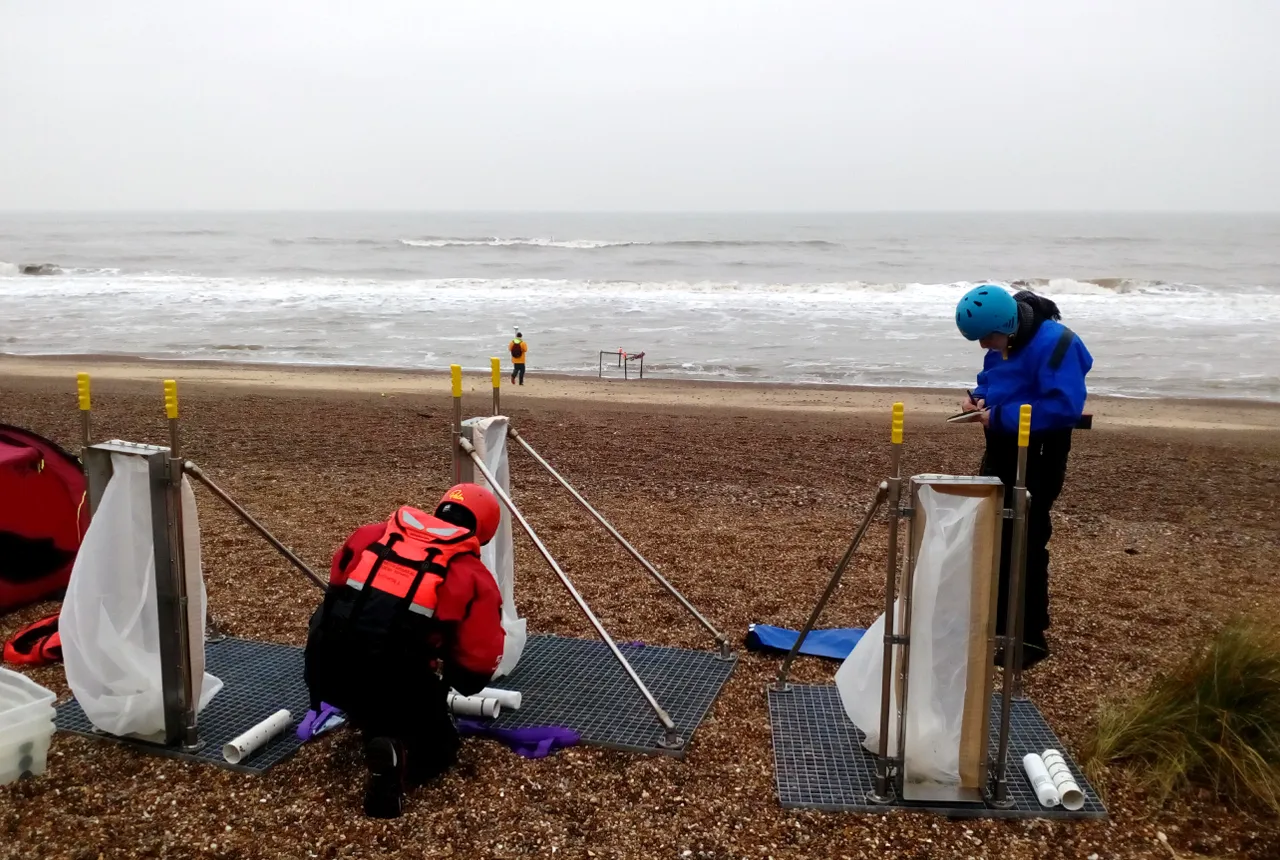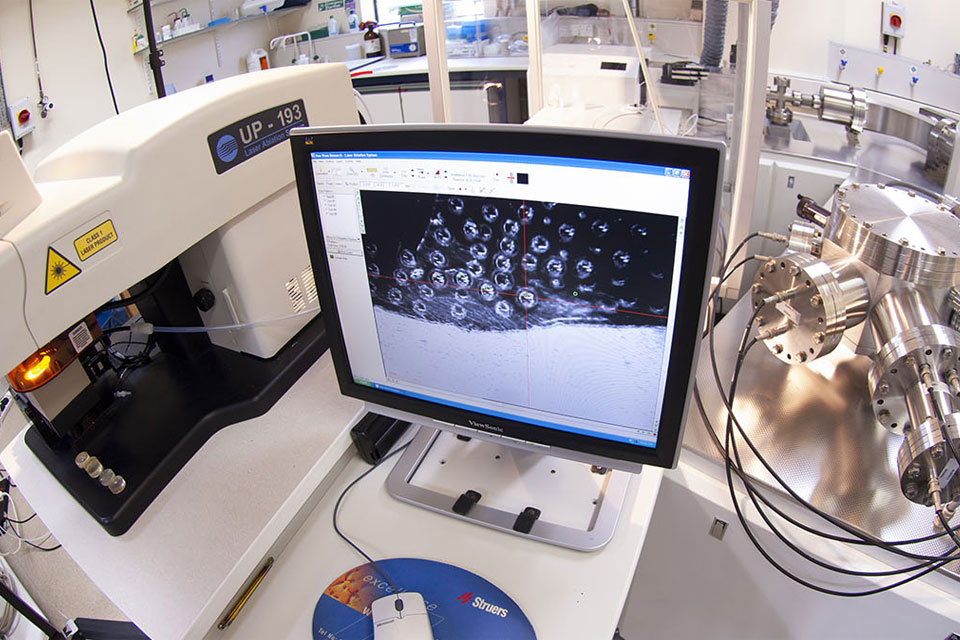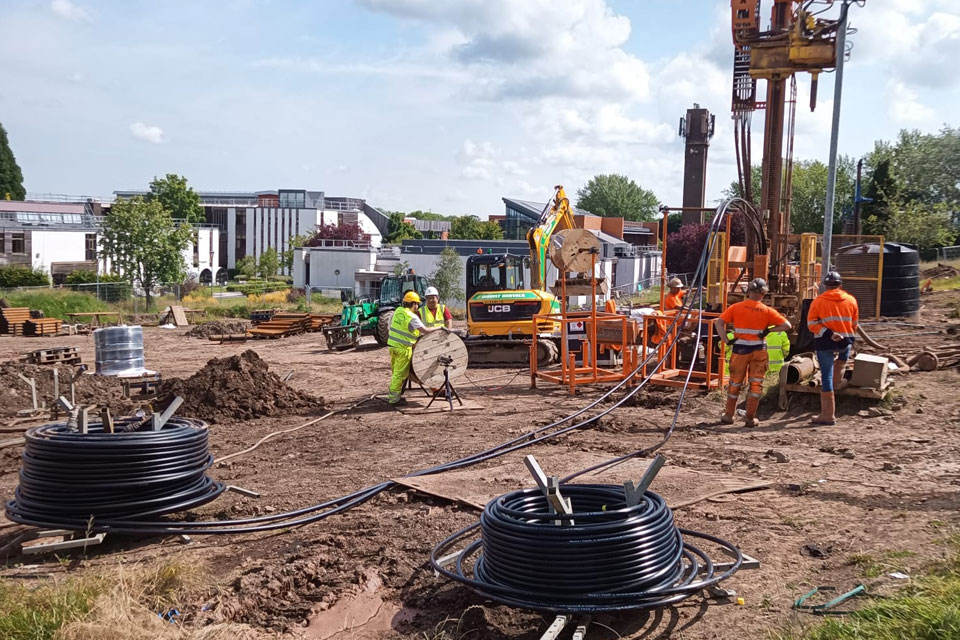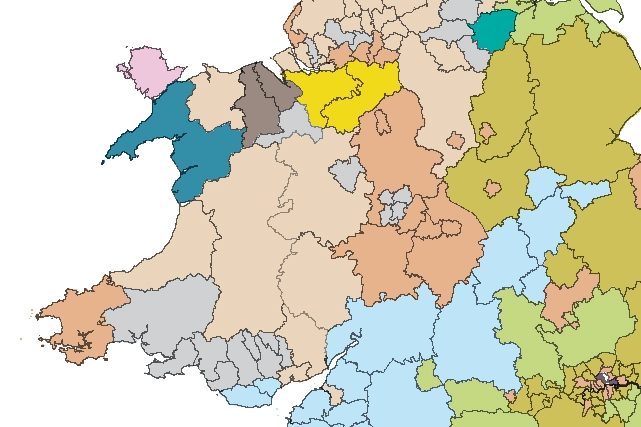BGS to lead new research project on barrier systems to support more sustainable coastal management
Scientists at BGS will lead a new four-year project that will enhance our understanding of gravel barrier systems across the coastlines of the UK.
06/12/2023 By BGS Press
Gravel-dominated beach and barrier systems are common around the UK and provide important coastal defences, especially in low-lying regions. A new, four-year research project, funded by the Natural Environment Research Council (NERC) and entitled ‘Gravel barrier coasts’ (GBCoasts), will deliver enhanced understanding and modelling of gravel barrier systems. The project aims to support more sustainable coastal management by increasing resilience and reducing the vulnerability of coasts to climate change.
BGS will use a new community modelling system, ‘Coastal modelling environment (CoastalME)’, alongside terrestrial, marine and groundwater models, to characterise how a combination of processes along gravel barrier coasts control coastal flooding and erosion.
CoastalME will produce numerical simulations to support multi-hazard analyses under present and future climate change scenarios. These will project, over a range of timescales:
- how multi-hazards will respond to predicted climate change processes and impacts
- how humans are affecting future hazards
- how we will be affected under different coastal management scenarios; for example, how do gravel barriers respond to individual events, such as storms, in the context of longer-term, ‘progressive’ trends, such as sea-level rise?
The results will support improved coastal management decision making based on the improved understanding of how gravel barriers evolve over longer time scales under different climate condition and human intervention scenarios.
The findings will be combined with an assessment of the role of coastal habitats, resulting in national maps of vulnerabilities of coastal habitats to climate-driven multi-hazards for protective services. BGS will also provide tools to analyse the efficacy of future coastal management schemes.
The GBCoasts project will enable us to better address the transformational challenges that many communities along the UK’s coastlines are facing today and in the near future, regarding ever-increasing risks of coastal flooding and coastal erosion.
Andres Payo Garcia, BGS Coastal Geomorphologist.
In order to achieve the objectives of GBCoasts, there will be a collaboration between the different sectors of UK academics, engineering consultants and research institutions.
The Natural Environment Research Council (NERC) is the driving force of investment in environmental science in the UK. It advances the frontier of environmental science by commissioning new research, infrastructure and training that delivers valuable scientific breakthroughs.
NERC invests public money in world-leading science, designed to help us sustain and benefit from our natural resources, predict and respond to natural hazards and understand environmental change.
Relative topics
Related news

Call for new members and Chair to join the NERC facilities steering committees
25/02/2026
New members are needed to join the committees over the next four years.

Your views wanted – developing a ‘Geothermal energy subsurface data portfolio’
24/02/2026
BGS is aiming to support the growth of the sector by providing the best-available, location-specific geothermal and ground source heat information as an accessible product or service.

Map of BGS BritPits showing the distribution of worked mineral commodities across the country
18/02/2026
BGS’s data scientists have generated a summary map of the most commonly extracted mineral commodities by local authority area, demonstrating the diverse nature of British mineral resources.

Funding awarded to map the stocks and flows of technology metals in everyday electronic devices
12/02/2026
A new BGS project has been awarded Circular Electricals funding from Material Focus to investigate the use of technology metals in everyday electrical items.

New UK/Chile partnership prioritises sustainable practices around critical raw materials
09/02/2026
BGS and Chile’s Servicio Nacional de Geología y Minería have signed a bilateral scientific partnership to support research into critical raw materials and sustainable practices.

Extensive freshened water confirmed beneath the ocean floor off the coast of New England for the first time
09/02/2026
BGS is part of the international team that has discovered the first detailed evidence of long-suspected, hidden, freshwater aquifers.

Funding secured to help mitigate ground risk in UK construction sector
05/02/2026
The BGS Common Ground project has been awarded new funding to help unlock the value of ground investigation data.

Can sandstones under the North Sea unlock the UK’s carbon storage potential?
02/02/2026
For the UK to reach its ambitious target of storing 170 million tonnes of carbon dioxide per year by 2050, it will need to look beyond the current well-studied geographical areas.

Quaternary UK offshore data digitised for the first time
21/01/2026
The offshore wind industry will be boosted by the digitisation of a dataset showing the Quaternary geology at the seabed and the UK’s shallow subsurface.

Suite of ten new soil reference materials released
02/01/2026
BGS has a longstanding track record of producing high-quality reference materials and has released ten new soil reference materials.

Perth and Kinross tops the UK’s earthquake activity charts for 2025
29/12/2025
Seismologists at BGS have published data on the number of seismic events over the past 12 months with over 300 earthquakes recorded.

BGS awarded funding to support Malaysia’s climate resilience plan
17/12/2025
The project, funded by the Foreign, Commonwealth & Development Office, will focus on minimising economic and social impacts from rainfall-induced landslides.



